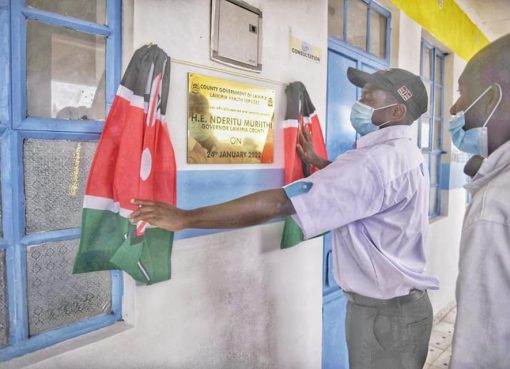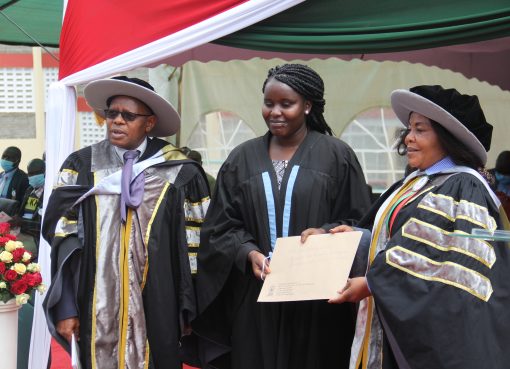The government is focusing on sustainable human development as a new vehicle to drive equitable and resilient economic growth countrywide, in line with its Bottom-Up Economic Transformation Agenda (BETA).
The new policy framework emphasizes maximizing human capital potential, focusing on harnessing the demographic dividend to achieve sustainable development goals.
The Director, National Council for Population and Development(NCPD) Parveen Sigey, speaking during launching of Sessional Paper No. 1 of 2023, on the Kenya National Population Policy for Sustainable Development, in Mwatate sub county, Taita-Taveta county, highlighted the organization’s role in research and demographic statistics.
Sigey noted that the newly released sessional paper addresses critical issues such as population size and age structure, fertility, mobility and mortality, migration and urbanization.
The paper also addresses key issues including population and human settlement, youth unemployment, environment and disasters, data, research and innovation, and resource mobilization.
The Director emphasized the significant migration concerns in Taita Taveta, where urban-rural and rural-urban migration are affecting local development.
He also cited the high rates of early marriages and child mortality in the county, stressing the need for urgent action.
At the same time, Sigey underscored the importance of young people utilizing their skills locally rather than migrating, while advocating for the enhancement of Technical and Vocational Education and Training (TVET) to provide necessary skills for local employment.
“Use your skills within your county. Don’t leave your county and go to other places because when you leave, and at that time the jobs are advertised, you will not be there,” Sigey advised.
His sentiments were echoed by Jacinta Mutegi, a member of the board of Directors at NCPD, who also addressed the importance of improving TVET institutions to provide skills for gainful employment.
“In recent years, the government and various stakeholders have intensified efforts to retain youth within their counties by enhancing Technical and Vocational Education and Training (TVET) institutions. These institutions aim to equip young men and women with valuable skills for gainful employment,” she said.
Mutegi stated that there has been a notable focus on developing capacities in fields such as agriculture, plumbing, electrical work, and entrepreneurship; initiatives that address the previously unmet demand for skilled professionals, such as plumbers and electricians, by ensuring that young people can find employment opportunities within their local communities.
Additionally, the Board member noted that non-state agencies, including religious organizations, have been instrumental in these efforts, providing targeted training programs to meet the specific needs of the local economy.
Mutegi further urged that empowering young women and girls through education and skill development has been a critical strategy stating that, “Historically, educating women has had a profound impact on entire communities. By providing them with the knowledge and skills to engage in sustainable agriculture and environmental conservation, these initiatives aim to mitigate the adverse effects of climate change, which disproportionately affect women.”
She reiterated that when women are educated and made aware, they are better equipped to manage household resources and contribute to community resilience, an approach which she says not only improves individual livelihoods, but also fosters broader societal buy-in and more effective implementation of sustainable practices.
According to the sessional paper, 13.4 percent of the young people aged 15-34, who are the core of the nation’s workforce are unemployed.
On her part, Josephine Onunga, the Taita Taveta County Commissioner, praised the sessional paper as a crucial tool for implementing government programs at both national and county levels.
She emphasized the importance of baseline data from the NCPD to guide action plans and program implementation.
“The synergy between national and county governments is vital for effective service delivery. This sessional paper provides essential data for planning and executing government programs, ensuring coordinated and effective policy implementation,” said Onunga.
The administrator further highlighted the benefits of collaboration among governments and stakeholders to maximize the benefits for citizens.
She also pointed out that the data from the paper would aid in addressing security issues and youth engagement by developing programs to combat drug abuse and other challenges.
“The planning phase of each particular government program and agenda must begin with this policy guidance. We work with other policies of the respective sectors, but this is the key ingredient that brings all sectors together. Once we analyze the sessional paper and see the composition of the information, it is going to guide us to have a more effective and efficient way of implementing our services,” Onunga added.
The Sessional Paper No. 1 of 2023 outlines strategies to manage population growth, with a core aim being to enhance the quality of life for Kenyans and align population policies with the nation’s development goals.
It focuses on key areas such as family planning, reproductive health, education, and gender equality, while addressing challenges posed by rapid urbanization and the need for sustainable resource management.
Meanwhile, as Taita Taveta County and the entire nation navigates the complexities of population dynamics, Sessional Paper No. 1 of 2023 serves as a crucial tool for guiding the country’s development trajectory.
By Arnold Linga Masila





